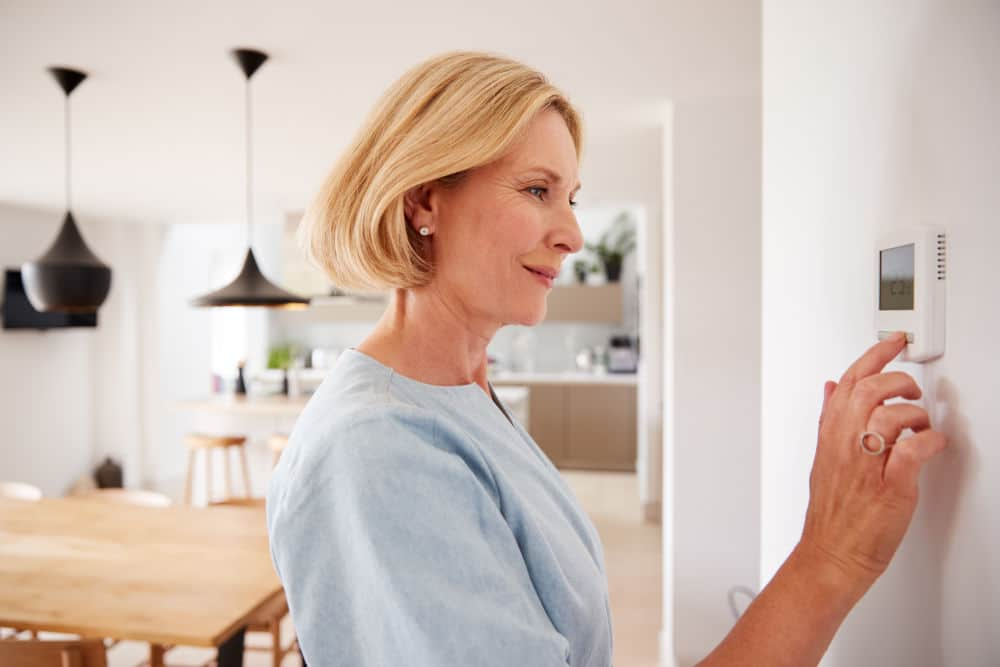As the world grapples with the challenges of climate change and rising energy costs, finding efficient ways to heat and cool our homes has never been more critical. One technology that has gained popularity in recent years is the domestic air source heat pump. These systems are lauded for their energy efficiency, but like any heating and cooling technology, they can benefit from a few optimisations. In this blog, we will explore what can impact the efficiency of your air source heat pump and provide practical steps to help you maximise its performance.
Understanding air source heat pumps
Before diving into the tips for improving efficiency, it’s essential to understand how air source heat pumps work. These devices operate by extracting heat from the outdoor air and transferring it inside to heat your home during the winter. In the summer, the process is reversed, and they can provide cooling. Air source heat pumps are highly efficient because they move heat rather than generate it, making them a greener and cost-effective alternative to traditional heating and cooling systems.
Factors impacting efficiency
Several factors can affect the efficiency of your domestic air source heat pump. Understanding these factors is the first step toward optimising your system’s performance:
-
Climate and weather conditions
The efficiency of air source heat pumps can drop in extremely cold weather, as there is less heat available in the outdoor air to extract. However, modern heat pumps are designed to operate efficiently in colder climates, and technological advancements continue to improve their performance.
-
Sizing and installation
Proper sizing and installation are crucial. An undersized heat pump will struggle to maintain your desired indoor temperature, while an oversized one may cycle on and off frequently, reducing efficiency and lifespan.
-
Insulation and home design
The quality of your home’s insulation and design plays a significant role in how well your heat pump can maintain indoor comfort. A well-insulated home with tight seals will require less energy for heating and cooling.
-
Maintenance
Neglecting routine maintenance can lead to reduced efficiency. Dirty filters, a lack of lubrication, or refrigerant leaks can all impact performance.
-
Thermostat settings
Properly configuring your thermostat settings can make a substantial difference in efficiency. Using programmable thermostats and setting temperature setbacks when you’re not at home or asleep can help save energy.
Improving energy efficiency
Now that we’ve identified the factors that can affect efficiency, let’s explore some practical steps you can take to improve the energy efficiency of your domestic air source heat pump:
-
Regular maintenance
Schedule annual maintenance checks with a professional technician to ensure that your system is clean, well-lubricated, and free of refrigerant leaks. Change air filters as recommended by the manufacturer.
-
Optimal sizing and installation
Work with a qualified HVAC professional to ensure your heat pump is correctly sized for your home and installed according to best practices.
-
Improve home insulation
Enhance your home’s insulation and seal any drafts. This will reduce the workload on your heat pump and make it easier to maintain a comfortable indoor temperature.
-
Thermostat management
Invest in a programmable thermostat and learn to use it effectively. Set it to lower temperatures during the night or when you’re not at home and raise it gradually when you need more warmth.
-
Supplement with solar
Consider pairing your heat pump with a solar energy system. Solar panels can help offset the electricity used to run your heat pump, making your heating and cooling even more environmentally friendly.
-
Regularly clean the outdoor unit
Keep the outdoor unit free from debris, leaves, and snow during the winter. A clean unit can operate more efficiently.
-
Use smart controls
Some heat pumps can be integrated into smart home systems, allowing for remote control and optimisation. These systems can learn your preferences and adapt to them over time.
Improving the energy efficiency of your domestic air source heat pump not only reduces your environmental footprint but also saves you money on energy bills. By understanding the factors that impact efficiency and following these practical tips, you can enjoy a more comfortable home while making a positive contribution to a greener future. Remember, a well-maintained and properly installed heat pump is the key to long-term energy efficiency and comfort.



